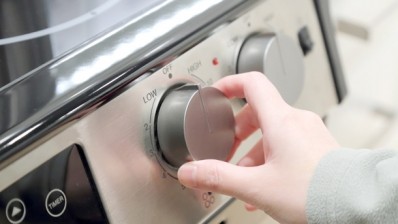Energy price hikes: What can hospitality businesses do now?

British Gas, Edf, Eon, Npower, Scottish Power and SSE have all caused nationwide anger after ramping up their prices and, according to energy efficiency firm Energy Works, the damaging effects for hotels, restaurants and pubs are already becoming clear.
A study carried out on UK hospitality business owners revealed that 91 per cent are concerned about the increase in energy prices, with over half (57 per cent) expecting to miss their growth targets by 10 per cent this year.
Over a third (34 per cent) of respondents said they would now consider reducing staff count as a way to save money.
“Although energy costs within the hospitality industry often account for a small percentage of outgoings, reducing electricity bills can dramatically improve revenue without having to increase sales,” said Derek Duffill, chief executive of Energy Works.
“With the country now facing an energy deficit, it is more important than ever before that those in the industry look at ways in which they can reduce their energy consumption without impacting on levels of comfort amongst staff and customers.”
Cutting costs
So, what can hospitality businesses do to avoid such a significant impact on their margins? Duffill pointed out that there are a number of easy energy efficiency and renewable energy solutions available.
“Businesses can take advantage of a free of charge LED retrofit in return for a percentage of the energy savings made over a typical period of five years,” he added. “This allows them to reduce their energy costs without any capital outlay while simultaneously improving atmosphere, wellbeing and security.”
Lighting now accounts for one fifth of all electricity used in the UK and, while 50 per cent of companies are aware that energy efficient LEDs could save them money in the long-term, 88 per cent are yet to make the transition.
Complete control
Paul Murphy, co-founder and director of Intecho – which provides energy efficient solutions for businesses - explained that intelligent building technology can help businesses to reduce their energy consumption by up to 40 per cent.
“Changing supplier isn’t an easy option for businesses, especially as the main six suppliers have all announced they are to put their prices up,” said Murphy. “Businesses operate in a different market from consumers and the business energy market is in need of review. In the meantime, there are other ways that businesses can make energy savings.
“Intecho is a provider of intelligent building technologies and automation systems for commercial and residential properties. We specialise in designing efficient, eco-friendly systems which provide complete control and flexibility of the lighting, heating, security of a building - helping to reduce energy consumption and ultimately energy costs.
“We have worked on refurbishment and new build projects in sectors ranging from retail, hotels, restaurants, stadiums and spas, to name just a few, and have a proven track record of energy reduction.
“Depending on specific requirements, businesses building new premises can realistically expect to make energy savings of 30 – 40 per cent per annum, which just goes to show that ‘going green’ could help many businesses through this latest debacle.”
Are you a hospitality business owner? How will the energy price hikes affect your business? Leave a comment below to let us know your thoughts.

















